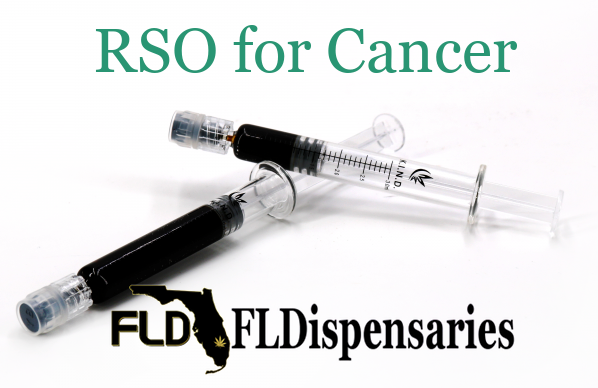

Does RSO cure cancer?
Rick Simpson claims his cannabis extraction technique produces an oil that has been shown to cure skin cancer.
Rick Simpson Oil (RSO) is a full-spectrum cannabis concentrate.
Preliminary research suggests that RSO might help slow the progress of tumor growth.
Additional research is underway to definitively answer the question of whether or not RSO can cure skin cancer.
What is Rick Simpson’s story?
Rick Simpson was a self-described “ordinary man” who worked as an engineer in the medical field. He was soon forced to leave his job due to a debilitating head injury resulting in a constant ringing in his ears, making day-to-day existence untenable.
Rick was prescribed the standard medications for tinnitus but found the side effects to be unbearable. In a serendipitous twist, he came upon a T.V. documentary about medical cannabis and it changed his life. After watching the documentary, he called a friend and asked if he would give him a joint to see if the herb would alleviate his tinnitus.
Rick noticed the effects of the marijuana immediately, finding immense relief from his symptoms, unlike anything he’d experienced from his standard medications. Additionally, the marijuana didn’t cause any of the nasty side effects he’d come to expect from his regular meds.
He was inspired to investigate the herb further after he read an article on medical marijuana in The Journal of National Cancer Institute. The article cited a study claiming that THC was capable of killing cancer cells in mice.
Rick’s curiosity compelled him to ask his doctor for a marijuana prescription, which was summarily denied by the physician. Rick continued to take his standard medication with disappointing results, and his symptoms gradually worsened.
Discouraged, he decided to start cultivating marijuana in his backyard, eventually learning how to concoct his own cannabis oil. This is what came to be known as Rick Simpson Oil.
With the administration of the cannabis oil, Rick noticed a lessening of his tinnitus symptoms. He also became aware of improved sleep patterns, lower blood pressure, and significant pain relief.
Rick Simpson’s 2003 cancer diagnosis and self-treatment

Rick was dealt another devastating blow in 2003 when he received a diagnosis of basal cell carcinoma – a deadly form of skin cancer. He reluctantly agreed to have the lesion surgically removed, but it came back after a few weeks.
He decided to try his homemade cannabis concoction on the affected area and began to apply the oil directly to the affected area. He was pleasantly surprised when after four days of application, the carcinoma was completely eradicated. When he revealed the revelation to his doctor, he was met with utter disbelief and told it was not possible.
Ignoring his skeptical doctor, Rick continued to make and use his cannabis oil. The following year he began freely sharing his product with dozens of people suffering from various skin conditions.
One of his recipients was a gentleman suffering from inoperable melanoma. The man began applying the oil to the melanoma and within three weeks was virtually cancer-free.
Since 2003, Rick has shared his cannabis oil with more than 5,000 people, and the results have been impressive. Many of the recipients fully recovered from leukemia and melanoma with the administration of the healing extract. In fact, Rick reported that 70 percent of his cancer patients experienced complete remission from the disease.
What is Rick Simpson Oil?
RSO is a concentrated extract made from marijuana with a high cannabinoid content. In most cases, Indica-dominant strains are used, however, RSO can be made from any strain of cannabis containing high levels of THC and/or CBD.
Classic RSO is generally called a full-spectrum extract because it contains the cannabinoids (medically active compounds) and terpenes (aromatic oils) found in the original plant.
RSO is made by soaking marijuana in a solvent to extract the beneficial oils (cannabinoids and terpenes). The solvent is then boiled away until all that’s left is a thick, dark oil that contains nearly 90 percent cannabinoids.
Patients don’t need to produce their own RSO as it is basically common cannabis oil concentrate. Patients with a medical marijuana card can purchase cannabis concentrate syringes at most medical marijuana dispensaries.
At present, there has been no definitive research on the product to determine its supposed cancer-curing qualities. Although some early studies utilizing THC and CBD in the treatment of cancer have been encouraging. Let’s take a look at a couple of those studies.
Studies on THC and CBD’s Efficacy for Cancer treatment
One study in particular in the publication Molecular Cancer Therapeutics attempted to answer whether or not CBD and THC could help to mitigate the side effects of radiation therapy in rats with cancer.
Ironically, researchers found that the application of THC and CBD alone actually slowed the progression of the tumors better than the radiation treatment alone. Furthermore, when cannabinoids were administered along with the radiation treatment the growth rate of the tumor was significantly retarded. Here is an excerpt from the study:
“Results showed that 4 Gy irradiation had no dramatic effect on tumor growth, whereas CBD and THC administered together reduced tumor progression. Combining the cannabinoids with irradiation impeded even further the rate at which tumor growth progressed, which was virtually stagnant throughout the experiment course; and correspondingly, tumor sizes on the final day of the study were significantly smaller in this cohort of animals compared with any of the others .”
Another famous in vitro study (research done on cancer cells in Petri dishes rather than live hosts) consistently indicated the tumor growth-inhibiting effects of CBD and THC, as well as synthetic cannabinoids.
Here is an excerpt from this study:
Cannabinol receptors have been identified in pancreatic cancer with several studies showing in vitro antiproliferative and proapoptotic effects. The main active substances found in cannabis plants are cannabidiol (CBD) and tetrahydrocannabinol (THC). These effects are predominately mediated through, but not limited to cannabinoid receptor-1, cannabinoid receptor-2, and G-protein-coupled receptor 55 pathways. In vitro studies consistently demonstrated tumor growth-inhibiting effects with CBD, THC, and synthetic derivatives. Synergistic treatment effects have been shown in two studies with the combination of CBD/synthetic cannabinoid receptor ligands and chemotherapy in xenograft and genetically modified spontaneous pancreatic cancer models. There are, however, no clinical studies to date showing treatment benefits in patients with pancreatic cancer.
This study paved the way for further investigation into the efficacy of medical marijuana as a cancer treatment. Today many more studies are underway.
Conclusion
So, does Rick Simpson Oil cure cancer? Although there is affirmative anecdotal evidence, and some promising lab results, the jury is still deliberating on this topic. Much more research needs to be done to validate the efficacy of RSO as a viable cancer treatment.
Many oncologists are genuinely concerned about their patients terminating their radiation and chemo treatments to experiment with Rick Simpson Oil. If the alternative treatment doesn’t work, the decision to forgo traditional treatment can be fatal.
Even medical marijuana doctors that recommend medical marijuana and cannabis derivatives such as RSO generally insist that patients continue their regularly prescribed treatment. And even if the cannabis oil does not cure their cancer it oftentimes lessens some of the effects of chemo and radiation such as nausea and vomiting.
To this day, Rick Simpson continues to share his healing elixir with cancer patients and claims to produce profound results.
Related Topics
Sources and additional reading
- Rick Simpson Oil (RSO) for Cancer: Does It Work? – WebMD
- Rick Simpson Oil for Cancer: Does It Work? Claims, Research …
- Man Heralded for Curing Cancer Seeks Asylum in Europe
- Rick Simpson oil for cancer: What is it, and does it work?
- Cannabis Extract Treatment for Terminal Acute Lymphoblastic Leukemia with a Philadelphia Chromosome Mutation
- Potential Use of Cannabinoids for the Treatment of Pancreatic Cancer
- The Combination of Cannabidiol and Δ9-Tetrahydrocannabinol Enhances the Anticancer Effects of Radiation in an Orthotopic Murine Glioma Model
- Cannabis Extract Treatment for Terminal Acute Lymphoblastic Leukemia with a Philadelphia Chromosome Mutation






